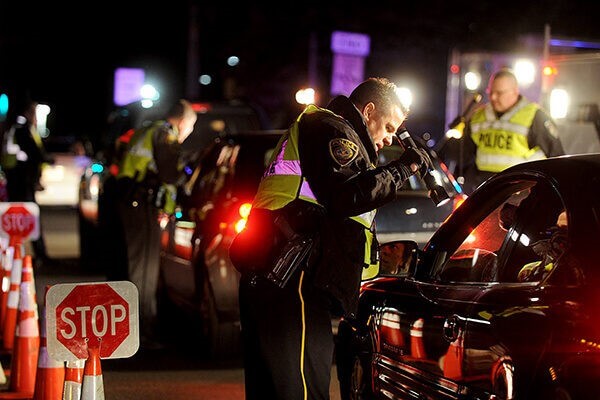For Darell Gabbard, who lived in Florida, it started as one of his regular nights after his shift working as a janitor. He had just completed two buildings and was ready to go home. However, before he did, he made a detour to a fast-food restaurant.
He didn’t get to go home after that. On that night in 2010, a police officer stopped him and asked if he was drinking under the influence. He wasn’t.
But the police officer still compelled him to take the field sobriety test, which he failed because of neuropathy, which gave him problematic legs. He, therefore, needed to take the breathalyzer test, but that would mean spending some time in the station and probably in jail.
Expectedly, the test registered a 0.00 result, but it wasn’t enough. He had to give a sample of his urine and blood and then go to court to further prove his innocence.
Fortunately, because his other results came back negative, the prosecutor dropped the charges. But the experience was traumatic and more.

Five years after, Gabbard filed a lawsuit against the city and won $20,000 in the settlement, although the police department believed the officer acted according to protocols.
Gobbard isn’t alone. Every year, more people found themselves facing wrongful DUI charges and arrests, which is why Americans should be ready to consult a DUI lawyer. The impact of these experiences can be devastating, including the difficulty of landing a job and dealing with the shame and trauma.
However, why does this happen in the first place? What should a person wrongly charged with DUI can do to protect themselves?
Contents
It’s All about a Probable Cause
Driving under the influence or while being impaired is one of the leading causes of vehicle collisions and motorist fatalities. According to the CDC, at least 10,000 people passed away because of alcohol-impaired driving crashes in 2016. In the same year, this cause accounted for almost 30 percent of all traffic-related deaths.
Because the cause is completely preventable, states are aggressive in reducing the number of people who drive behind the wheel while high on drugs or intoxicated. They can also severely punish those who violate the law against DUI driving.
And in many states, all it needs is a probable cause to stop a person from driving and check if the driver is under the influence. The cause doesn’t need to be DUI-related. For example, they may stop you from using tinted windows, beating the red light, or speeding-typical traffic violations.
However, by stopping the individual, the officer can now observe and interview the driver. If they have reason to suspect, even if there’s still room for doubt left, that they may be under the influence, they may order the driver to go through sobriety tests.
In certain situations, though, the officer doesn’t need probable cause to stop a vehicle. Some states actually have sobriety checkpoints, and here, they can flag any car and check the driver for DUI offenses. (Note that only 39 states for far set up such checkpoints. In places like Washington, these have already been outlawed.)
In the end, though, determining whether there’s a probable cause can be tricky,as shown by this 1949 case. Thus, anyone wrongfully charged needs to call an attorney as soon as they find themselves in a sticky situation.
What Happens Then?
To avoid violating the Fourth Amendment, a police officer cannot conduct searches and seizures without the driver’s permission. However, if the vehicle is involved in an accident, they can tow it for evidence. They may also do the same thing if the driver ends up getting arrested and charged for DUI.
Failing the sobriety test can become one of the grounds for an arrest andjail timeuntil the driver receives his charges. Here, however, the department needs to perform more exams to guarantee that the person is under the influence.
However, drivers need to remember a couple of things. Alcohol in the breath may not be enough grounds for being accused of driving under the influence. Based on the description of the charges, the substance should be potent enough to affect one’s driving behavior or skills.
This means that if they think they are wrongfully accused, they can resist the arrest. They may also pursue different remedies, such as the motion to suppress DUI evidence, which can help strengthen their case in court.
Many police decisions are based on noble intentions. Stopping DUI drivers can keep the individual and everyone who uses the road safe from harm. But many factors can affect an officer’s judgment on the probable cause, some of which may lead to unlawful or wrong DUI charges.